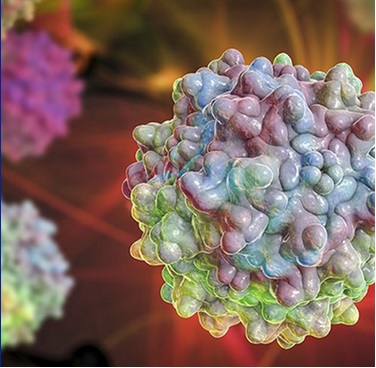
The Potential of Exosomes
It was not long ago when exosomes were thought to merely be waste products excreted by cells. They had no apparent importance or obvious special quality. Current research has discovered that these nanoparticles are a perfect representative of their cell of origin, facilitating gene transfer between cells. Simply put, they have the ability to act on behalf of a parent cell across the body, which with development could open the door to their use in targeted therapeutic drug delivery. Worth noting too is that exosomes are smaller and less complex than their host cells. These attributes give the biotech industry a glimpse at, and hope in, their currently untapped potential. As research and discovery of their biological nature begins to unfold, it is exciting to hear the potential of exosomes linked to early diagnosis of cancers. In exosomes, are we looking at the next modality for cell therapies?
What are Exosomes?
So, what are they? An exosome is a small endosomal derived extracellular vesicle that is 30-150 nanometers (nm) in diameter. In mammals, exosomes are derived from a variety of sources including stem cells, body fluids (blood, milk, saliva, cerebral spinal fluid, lymph, etc.) and dendritic cells. Although not fully understood, exosomes have an important role in physiological and pathological processes because of their ability to mediate intracellular and extracellular communication. Exosomes are capable of carrying lipids, proteins, and RNAs.
Their ability to communicate and carry biologically active cargo makes them a versatile cell free option for therapeutics. As such, they could be used in therapeutics for wound healing, cancer, and myocardial ischemia. Exosomes can also cross the blood brain barrier and could be used in therapeutics against Alzheimer’s, Parkinson’s, and traumatic brain injuries. Because of their non-immunogenic nature, exosomes are also well positioned to be drug delivery carriers. Exosome expression has been observed in pathological cells such as cancer and HIV revealing that they also have the potential to be used as a diagnostic tool for early detection of a diseased state.
Current Market Landscape
At the time of writing there are 192 clinical trials based on exosomes1. However, there are currently no exosome-based therapeutics that have been approved by the Food and Drug Administration. Current advancement in understanding the mechanism of action of exosomes has led to several industries surrounding this emerging field. The exosome industry has a compound annual growth rate of 37.8% with a potential to be valued at $368 million dollars by 2022.
There are several collaborations for the development and commercialization of exosomes. Codiak Biosciences and Jazz Pharmaceutical Inc. collaborated in order to understand the solid tumors and hematological malignancies. Avalon GloboCare Corp formed a collaboration with Weill Cornell Medicine to form cGMP-grade standards for exosomes derived from human endothelial cells. In addition to those companies, several others such as Capricor Therapeutics Inc, Boehringer Ingelheim* GmbH, United Therapeutics Corporation, and Lonza, are involved with the research, development, and manufacturing of exosomes3. On the manufacturing front, Lonza recently announced the acquisition of Codiak’s manufacturing facility and licensed its exosome manufacturing technology4. It is clear from this investment of time, money, and resource that the biopharmaceutical industry wholeheartedly believes in their potential.
The Future of Exosomes
So, could exosomes be the next level of cell therapy? We cannot predict the future. What we can do is innovatively and scientifically follow the biological trail set before us, allowing the full nature of exosomes to be discovered. And their potential? Maybe it is as big as we want to make it.
Author Details:
Juliet Kallon
Bioprocess Specialist
Pall Life Sciences
https://www.pall.com/en/biotech.html
-
In accordance with Medical Device Authority (MDA Malaysia Ministry of Health, Malaysia), MyMedicNews serves as the leading online media in the medical device industry for Malaysia and the ASEAN region. We provide a creative one-stop web portal to deliver the latest news and product development in the medical device industry. Through our portal, key industry players can deliver business information, product, and services effectively to relevant target audience.
Disclaimer: All content is for informational or educational purposes only, and does not substitute professional medical advice or consultations with healthcare professionals. Medical device advertisements and their content are intended for Healthcare Professionals only. More information related to Malaysia medical device news, products, registration, and regulations is available on Medical Device Authority.

